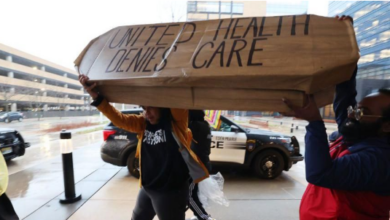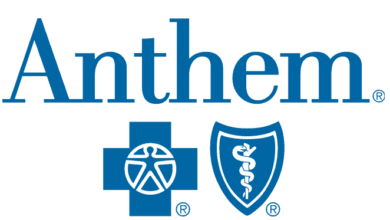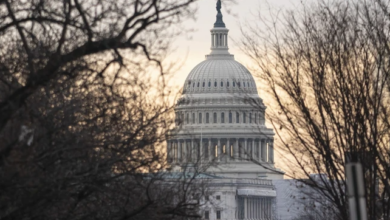Chanel Porchia-Albert On Expanding Access To Doula Care


Source: enigma_images / Getty
Baby Dove is doubling down on their mission to help Black mothers access quality maternal health services with the launch of a new program tied to the company’s Black Birth Equity Fund initiative. On Sept. 12, Baby Dove announced an additional $250,000 to support nearly 200 expectant Black mothers across the country with critical funds needed for a successful and healthy delivery.
Under the initiative, the beauty brand also launched its new doula campaign, spearheaded by Ancient Song Doula Services co-founder Chanel Porchia-Albert. The mother of six is an activist and a professional doula who has been working to eliminate maternal and infant mortality and morbidity among Black and Latinx people since 2008. Porchia-Albert will work alongside the brand to raise awareness about some of the maternal health conditions impacting Black mothers today, from post-partum depression to life-threatening conditions like pre-eclampsia.
Additionally, Porchia-Albert will educate mothers about the importance of doulas and their services through the #DearDoula content series. The expert will share answers to Black parents’ most common questions about pregnancy, labor & delivery, and baby care during the social media campaign.
NewsOne sat down with the Brooklyn-based maternal health advocate to learn more about the campaign and her journey in the doula industry.
NewsOne: Can tell us what a doula is and why having one is particularly important for Black women and birthing people?
Chanel Porchia-Albert: A doula is someone who provides emotional and physical support to mothers we’re talking about black maternal health and centering Black mothers and pregnant people. I would also add that doulas help individuals advocate for themselves during their birthing experience to connect them to resources so they can make informed decisions about their care.
NO: How did you become a voice and leader in this conversation and space around maternal health?
CPA: Yeah, so I got into this work based on my birth experience. I started out by seeing a Black woman OBGYN. But I just wasn’t with the care that she was providing. It was very sterile. And so I found a Black midwife and a doula on MySpace and had an amazing experience at beautiful home birth in Brooklyn, New York, on a hot, sunny August day.
I took doula training when my son was only seven weeks old. That doula training was also held at a Black maternal health conference. And I was around Black midwives, doulas, healers and herbalists and advocates and folks sent to me and showed me what it meant to be held as a new parent. And I started to attend births and saw the ways in which low-income Black women and birthing people, Brown and indigenous people, and those who are undocumented, were treated at the bedside. Seeing folks being illegally drug tested. Seeing how segregation played a role in health care access. Seeing the ways in which incarcerated pregnant people were treated and where human rights were stripped away from them and wanting to change the way in which I was able to provide care.
As doulas, our work is really centered on this interpersonal role and how we center the birthing person at that particular moment. But I thought about the impact of what means in the long term. As much as I, as a doula, love affirming individuals in their individual experiences, I wanted to create a collective community shift in how all birthing people and pregnant women were accessing healthcare services. So that led to me doing more advocacy work. And working on city, state and federal policies centering Black maternal health and looking to take action steps to do things in the now.
That also ties into provider education. I teach incoming midwives. I’ve taught OBGYNs and continue to do that. And really, what it means to center someone’s collective humanity and bring forth change within how they feel about their reproductive health access, but also thinking about it sustainably and what it means when we’re parenting in the future.
NO: What does it look like to expand resources and support for folks for it to be more sustainable moving forward?
CPA: I think it looks like initiatives such as the Black Birth Equity Fund and individuals, wherever they may be in the United States, able to tap in and get a grant to access doula services. One of the biggest barriers to someone getting doula services is cost. That financial burden can be removed if someone can see the provider they want to see and have those services covered.
The doubling that Baby Dove has provided, initially they provided somewhere around $250,000. And now they’re doubling that effort. And it’s $500,000 in the initiative. Being a part of and promoting something where someone has access to care is really important to me because one of the things that we have always prided ourselves on at Ancient Song and our work is that we don’t turn anybody away regardless of their ability to pay.
I want everybody to know that you do have access to high-quality, holistic doula care. And you deserve to have that in a way that affirms you as a Black parent. We find ourselves at this precipice of more people knowing about doulas, learning more about midwives and the importance of midwives within Black communities. Hopefully, this is just the first iteration of many things to come.
NO: Where do you suggest people start if they are looking for a doula?
CPA: I would always tell people to ask themselves, ‘how do you vision your birth?’ Often, people are taken aback, and they’re like, ‘what do you mean I’m gonna go to the hospital.’
I’m like, ‘but do you know that you have other options?’
And so, one of the resources I will lean into is, of course, Black Mamas Matter Alliance. If you go to our site, it has resources. Baby Dove has created a registry, as well as the Black Birth Equity Fund.
We also have a platform called Just Birth Space. And that is a perinatal text line where folks can text in, and they can ask any kind of question. The advent of social media, especially this #DearDoula series, gives people the opportunity allows people to ask those questions. They can see where they can go and learn about what it means to access resources within their respective communities.
NO: Anything else you would like to highlight about your partnership with Baby Dove?
CPA: I think the work of doulas as being a viable option for birthing people and Black women is important in conjunction with offering sustainability for those doulas and midwives to be able to do that work. It’s also important for doulas to be able to sustain themselves and for those organizations to be able to do that as well. And so really looking at what does it mean to look towards community-based organizations, community-based doula programs, who are centering a framework of community models where their workforce development but also offering sustainability to the organization so that they can continue to do the work and equitable ways and, you know, provide education and resources?
Baby Dove and Black Birth Equity Fund allow community members to tap into a financial resource that can promote their overall well-being. Then it also offers sustainability to the doulas. Because now you’re paying a doula a living wage for the services that they are rendering.
SEE ALSO:
Baby Dove Advances Efforts To Address Black Maternal Health Disparities
Olympian Allyson Felix Teams Up With Pampers To Address Black Maternal Health Crisis
Source link






